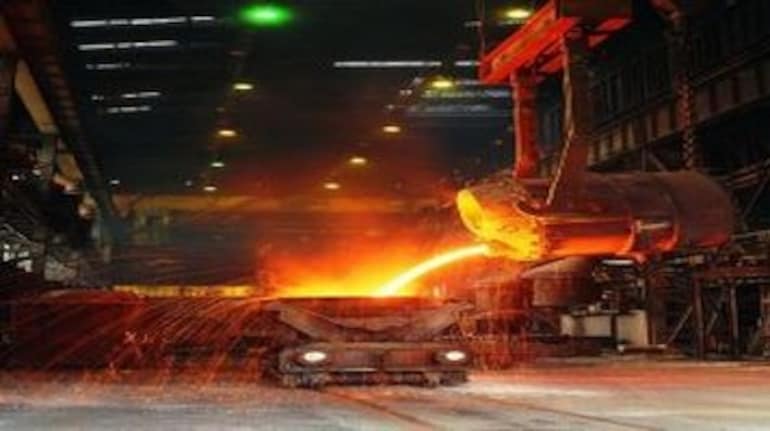



Steel stocks are shinning bright rejoicing at government's protection measures safeguarding the industry. Shares of Tata Steel, JSW Steel, JSPL and SAIL rallied 2-4 percent intraday on Friday. The government has extended minimum import price (MIP) on 66 steel products for two months after recommending anti-dumping duties on hot-rolled coils (HRC) and cold-rolled coils (CRC) earlier this week.
Aruna Sharma, Steel Secretary says in an interview to CNBC-TV18 that anti-dumping duty is a more lasting protection and the government intends to levy the same even on the 66 products that have got MIP extension.
Analysts see these measures to be positive for the industry. Credit Suisse expects supply to rise 10 percent, mainly driven by the four major listed names and Essar Steel. Assuming a 2.5 metric tonnes drop in net imports, it sees only a small net surplus, which is 1 percent of demand. It argues that even a USD 40 per tonnes rise in global steel prices could make exports viable. “Given the large difference between local and import parity prices, domestic demand-supply becomes critical. While domestic steel demand has been tepid so far (up just 1 percent YoY in the last three months), we expect it to rise back to over 5 percent levels once the monsoon retreats,” it says in a report.
The brokerage firm is maintains overweight rating on Tata Steel (target: Rs 440), JSW Steel (target: Rs 2000), JSPL (target: Rs 85) but is underweight on SAIL (target: Rs 35).
The Director General of Anti-Dumping (DGAD) has recommended anti-dumping duty on imports of HRC products from China, Japan, Korea, Russia, Brazil and Indonesia. HR forms 50 percent of steel imports and the six countries form 98 percent of HR exports to India. “The anti-dumping duty would be charged as a price differential similar to MIP but covers a wider product base and can be imposed for a longer period unlike the MIP and safeguard duty. Stagnant domestic demand has been a key concern for the steel producers and holds the key for a sustainable price recovery,” says Macquarie.
The firm says that its channel check suggests high trader inventory in the domestic market which could result in further correction in domestic prices in Aug-Sept 2016 as demand would remain weak due to the ongoing monsoon season. Demand recovery in 2H17, post monsoon, remains crucial for domestic prices to recover, it points out. Due to import restrictions, steel imports were down 30 percent in Apr-June 2016. However, Citi says muted domestic demand coupled with supply side pressures should cap prices. Domestic prices are down 7 percent from May, discount to MIP and import parity.Follow @NasrinzStory
Discover the latest Business News, Sensex, and Nifty updates. Obtain Personal Finance insights, tax queries, and expert opinions on Moneycontrol or download the Moneycontrol App to stay updated!
Find the best of Al News in one place, specially curated for you every weekend.
Stay on top of the latest tech trends and biggest startup news.